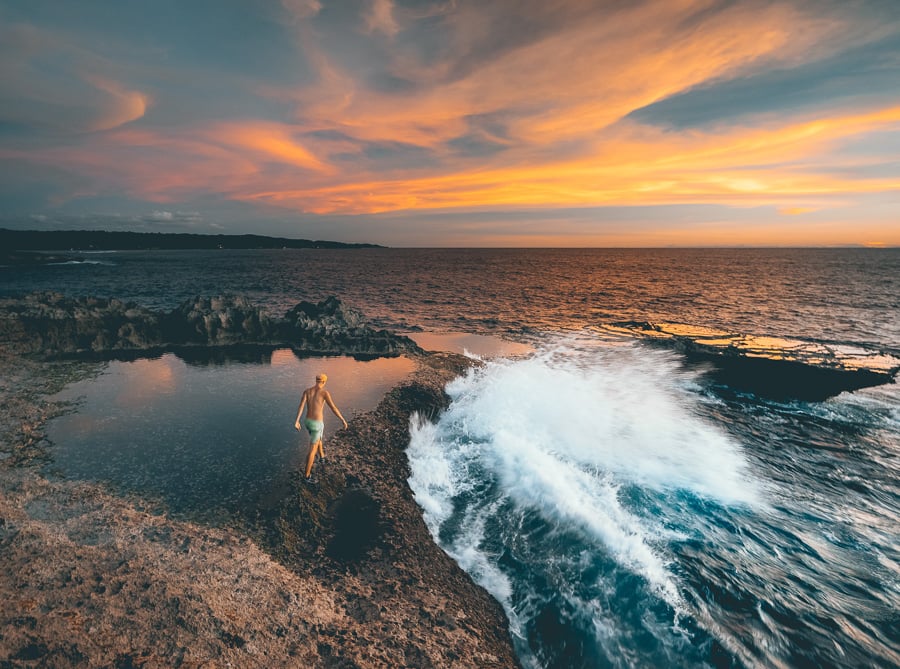When one thinks about sharks, this image often comes to mind. While the great white shark is definitely the most well-known shark, there are many types of shark in the ocean. Not all of them are notoriously aggressive like the great white shark. In this blog I’d like to talk about thresher sharks.
Thresher sharks are not aggressive and are in fact very shy and tends to swim away when they see SCUBA divers in the sea. Unlike great whites, they have a very innocent look on their faces and they mainly feed on small fishes. What makes the thresher shark unique is the way it hunts. Instead of attacking their prey head-on, they often use their whip-like tail to deliver an incapacitating blow to small fishes so it can eat them at a leisurely pace afterwards. They are solitary animals and can be found in warm temperate waters including Indonesia.

Currently, thresher sharks considered an endangered species (Source here). The main reason for this is overfishing. Thresher sharks are often captured for food and medicine and this is exacerbated by the fact they reproduce slowly.
One spot in Indonesia that is known for thresher shark fishing is Alor, East Nusa Tenggara. Many of the local fishermen depends on thresher shark fishing for their livelihood. While the locals understand that the population of thresher sharks in the area has been decreasing, it is not an easy matter to convince the fishermen to stop fishing them when they have families to support at home. One organization is trying to find a solution for this conundrum, Thresher Shark Indonesia.
Thresher Shark Indonesia is a youth-led conservation non-profit that aims to protect the declining population of endangered pelagic thresher sharks. Since 2018, they have conducted various research, engagement, and outreach for local communities to stop hunting the species by providing policy recommendations, and alternative livelihoods for communities who depend on them.
One method they are using is satellite tagging. By tagging the thresher sharks, they can monitor the movement of the sharks so they can gather information and protect them.

If you are interested and passionate about conservation, Thresher Shark Indonesia invites everyone to participate in their Conservation Experience. This program offers outdoor and conservation enthusiasts to experience Alor’s biodiverse and unique marine biota and ecosystem, understanding its fragility and participating in its direct conservation action.
The divers who join will work with our local Indonesian team to explore approaches to marine conservation and directly interact with surrounding indigenous communities (both land and sea) who call this place home. Learn about conservation project development and management, including project cycle, budgeting, and resource allocation. Maybe even experience first-hand on the thresher shark tagging activity. Their program consists of:
- Marine Conservation Project Design
- Thresher Shark Conservation
- Mangrove, Seagrass, and Coral Conservation
- Community Outreach
- Island Hopping (for long term project)
- Fun Dives
An excellent program to gain invaluable knowledge and practical experience on your scuba dive trip in Alor. If you are interested in to know more about the program, click here Conservation & Fun Dives or you can contact directly Indonesea.id team here to find out more.

